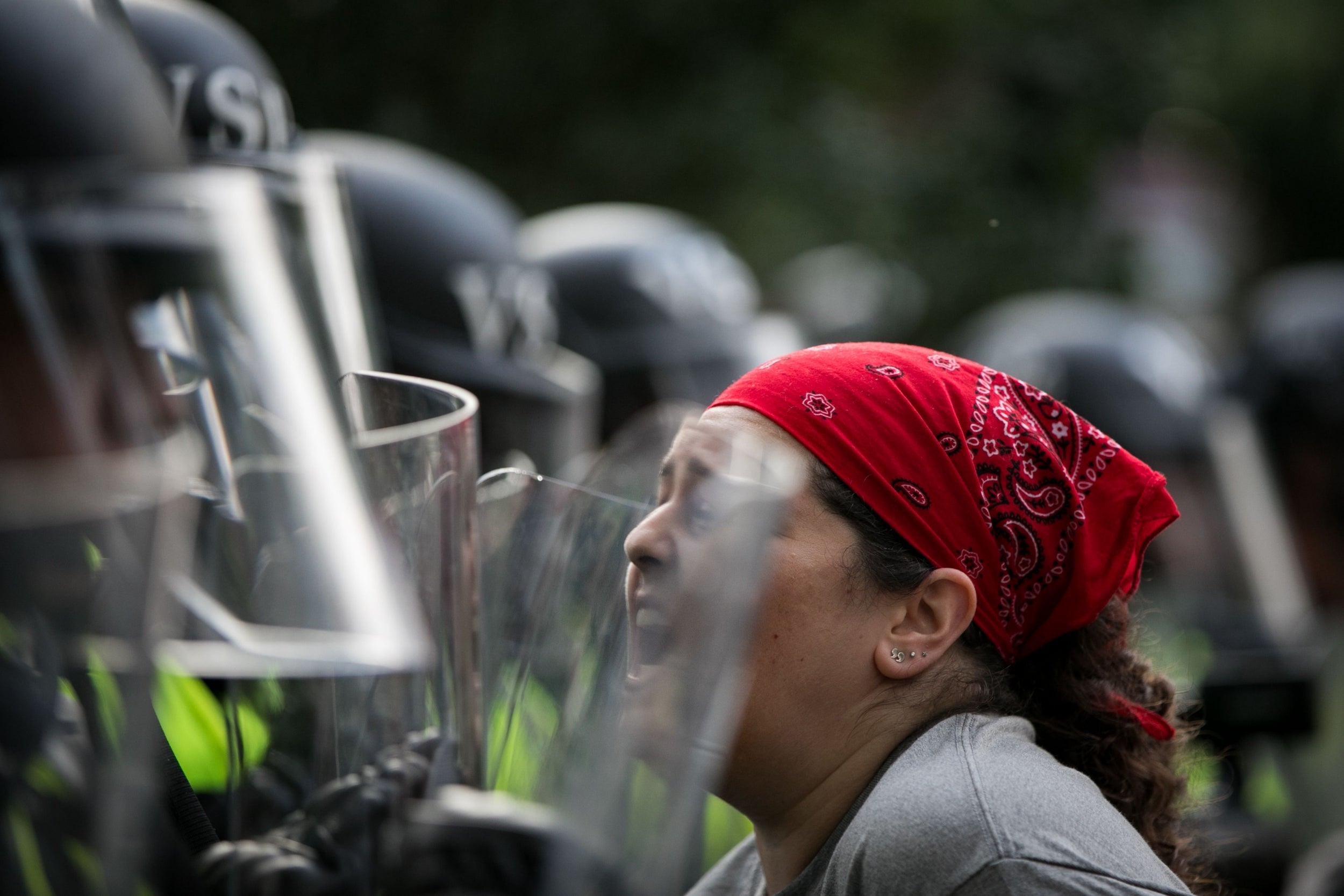I knew what it was like being black and British – but when I moved to the US, I was called the N-word for the first time
As I walk around my campus, I now wonder: what does it mean for me to be standing on ground built by slaves?

Your support helps us to tell the story
From reproductive rights to climate change to Big Tech, The Independent is on the ground when the story is developing. Whether it's investigating the financials of Elon Musk's pro-Trump PAC or producing our latest documentary, 'The A Word', which shines a light on the American women fighting for reproductive rights, we know how important it is to parse out the facts from the messaging.
At such a critical moment in US history, we need reporters on the ground. Your donation allows us to keep sending journalists to speak to both sides of the story.
The Independent is trusted by Americans across the entire political spectrum. And unlike many other quality news outlets, we choose not to lock Americans out of our reporting and analysis with paywalls. We believe quality journalism should be available to everyone, paid for by those who can afford it.
Your support makes all the difference.I don’t know when I started feeling so much terror when I saw a US police officer. My heart races and my hands get clammy whenever I walk past them. Whenever they greet me, I make sure to respond quickly, with an additional “sir” or “ma’am” at the end to signify respect.
This is not to say that police officers didn’t sometimes make me uneasy in my hometown of London. Earlier this year, data showed that police are four times more likely to use force against black people than white people in London, despite black people accounting for only 13 percent of London’s population.
But here, it’s slightly different. This is the American South, after all. I sometimes wonder: what would happen if I was rude to an officer, or if I didn’t return their greeting? Would the officer shoot me for being aggressive? Or would that be the excuse that he would use?
This scenario plays over and over in my head as I struggle to come to terms with what it means to be black in America, scared that one wrong move could lead to me being dead in seconds.
Last August, I moved to Durham, North Carolina to attend Duke University. I came knowing that even though I’d experienced racism in the UK – being asked, “Where are you really from?” at school; being told to “go back to where you really come from” after Brexit; and being followed around by staff at my local Marks & Spencer – that it would be difficult to adjust to America’s racism.
It was here that two students called me a “n*****r” at 2am; here where a friend taught me to make sure the police knew where my hands were; here that a black cashier at the supermarket shared with me her fears that one day her son will not return home.
I don’t tell these stories to dismiss the racism that black people and minority ethnic individuals face in the UK. But rather, I am meditating on how I adjust to the way race and racism functions in the US, and how it is built into the fabric of our society in the UK.
When I contemplate what it means to be a queer black woman in the American South, it feels heavy. It’s not dissimilar – just somewhat familiar. Just like in the UK, I am aware that white people’s racism can determine the outcome of my future. But I still don’t know how to understand that a police officer, or a white supremacist, could see me and shoot, and that would be the end.
I’m dealing with the immediate legacy of slavery, which I see every day in deeply segregated cities and schools, and how that racial schema produced a hierarchical arrangement that we don’t discuss enough. As I walk around my campus, I wonder: what does it mean for me, as a black woman, to be standing on ground built by slaves? What does it mean to be celebrating 50 years of black students studying at an institution that has existed for centuries?
How should I process the fact that my university only just recognised that an African American designed the school’s main campus?
Yes, the racism here is everywhere and violent, but the longer I stay here, the more I realise that it is the same.
In the UK, we’re really good at erasing the legacies of slavery and colonialism, and how so many of us are still carrying that trauma. But being in the American South has forced me to contend with what was sometimes easier to ignore about race and racism in the UK.
Black people dying in police custody. Black boys being stopped and searched. Black women being killed by the police. Black children being failed by their schools. In short, the racism in the UK is just as insidious and violent as the racism I’m learning to live with in the US. The problem is that it’s so easy to point to America’s killings of black people, to say “that’s not happening here” and to ignore everything else. There are many ways in which the state is slowly killing black people, and just because it doesn’t come in the form of a gunshot doesn’t mean it doesn’t matter.
I don’t think I’ll ever forget being called a “n****r.” I don’t think I’ll ever stop feeling terrified around the police. But being in the American South for the last 12 months has forced me to realise just how global anti-blackness is, and just how far we have to go.
Join our commenting forum
Join thought-provoking conversations, follow other Independent readers and see their replies
Comments